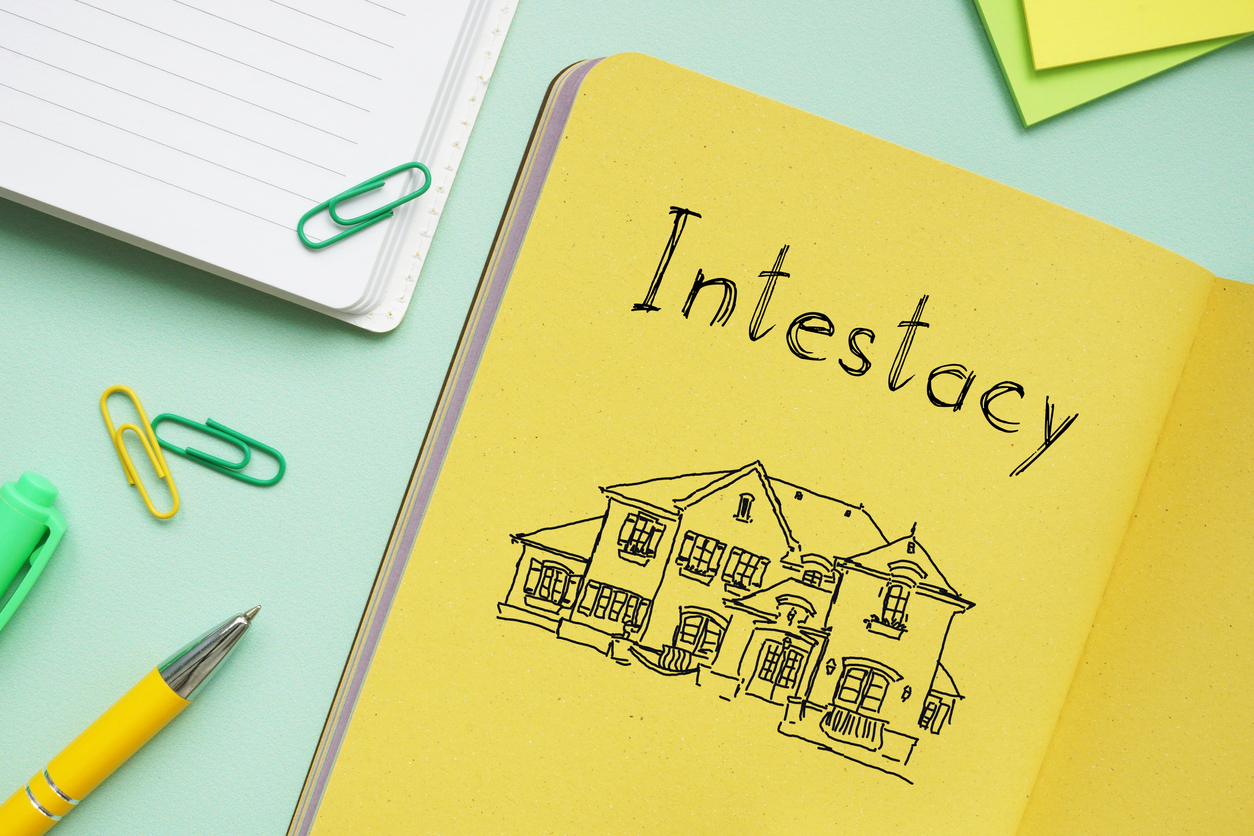
We often see situations where individuals haven’t made a will and are unaware of the potential consequences of leaving the laws of intestacy to determine the destination of their estate. As October is Free Wills Month, we thought this an ideal opportunity to remind our readers of the importance of making a will.
Free Wills Month is an initiative where a number of leading charities offer members of the public over the age of 55 the opportunity to prepare or change a simple will free of charge, by using a participating Solicitor.
Just under half of the UK population have not made a will, which is a frightening statistic given the potential issues that can arise by relying on the laws of intestacy, which are a standard set of legal rules that apply if an individual dies without having made a valid will. Who benefits from an intestacy depends on a strict order based on family connection, rather than which family member is most in need. It is important to note that these rules differ for estates covered by Scottish Law.
Intestacy rules
For those who are married, or in a civil partnership, the surviving spouse or civil partner will receive the full value of the estate, unless there are surviving children. In this instance, the surviving spouse or civil partner will receive the first £270,000 of assets, with the remainder of the estate being divided in half. The surviving spouse or civil partner receives an absolute interest in one half of the remainder, with the other half divided equally between surviving children.
The situation is even more complicated for those who are unmarried. For anyone dying intestate with children (either biological or adopted), the children will inherit the estate at the age of 18, with the estate divided between children equally. For anyone dying without being married or in a civil partnership, and without children, assets first pass to any surviving parents, and then to siblings (if parents are deceased) and then to grandparents (if alive) and then to wider blood relatives, such as aunts and uncles. An individual who dies without any surviving family will see their estate being left to the Crown.
Potential complications
As you can see, the intestacy rules are complicated enough, without considering how they haven’t kept up with the way modern families are living. A particular issue we come across regularly is couples that have lived together for many years but have not married, and wrongly assume that this affords each other protection under the law. It is crucial to remember there is no such thing as a common-law partner under UK law, and in this situation an unmarried partner of an individual dying intestate would not be left anything under the intestacy rules. This can leave surviving partners in financial difficulty at a time of great distress, and lead to outcomes that differ wildly from expectations. For example, this could mean the unmarried partner being forced to move out of the family home, or funds being left to an estranged spouse.
A will can also deal with important aspects such as guardianship of children, or how funds are left for minor beneficiaries so that they benefit from any inheritance at the right time. The legal age of majority is 18, however, many would consider 21 or 25 as being more appropriate dates for beneficiaries to receive funds when they are potentially more financially aware and in a position to use the funds wisely for further education costs or a house deposit.
Intestacy also leads to further complications in dealing with the estate. Where a will has been left, this usually clearly sets out the wishes of the deceased, including such matters as funeral arrangements, or how possessions are to be distributed. This is a great help to executors and family members in dealing with arrangements at what is a difficult time. Dying without a will leaves no named executor, and family members or other individuals will need to decide amongst themselves who will be appointed as administrator of the estate.
Ensure your will is up to date
At FAS, holistic financial planning is at the heart of what we do. Whilst we do not write wills, we regularly remind our clients of the need to both prepare a will, or ensure an existing will is up to date and reflects an individual’s wishes as part of a wider review of their financial planning objectives. Not having a valid will, or holding a will that is out of date, could potentially undermine financial planning strategies, or potentially lead to higher levels of tax being paid.
In conjunction with reviewing existing wills, or preparing a new will, it is also very important to ensure that an ‘expression of wish’ for any existing pension arrangements is similarly up to date.
On the death of anyone holding a personal pension arrangement, it is a common misconception that the residual pension also passes in accordance with their will. This is not the case, and the pension trustees can choose who will benefit from the pension arrangement. They will, however, consider an ‘expression of wish’ left by the deceased pension holder, which sets out how the pension holder would like the benefits to pass in the event of their death, when deciding who receives benefits from a pension.
Make a will this month
Make this month the time to make a will. As part of our holistic planning service, we constantly remind our clients of this important step, ensuring assets accumulated during a lifetime are left in accordance with your wishes. Leaving matters to the laws of intestacy may not achieve the desired outcome and could cause financial distress at an already difficult time.
If you are interested in discussing the above with one of our experienced financial planners at FAS, please get in touch here.
This content is for information purposes only. It does not constitute investment advice or financial advice.





